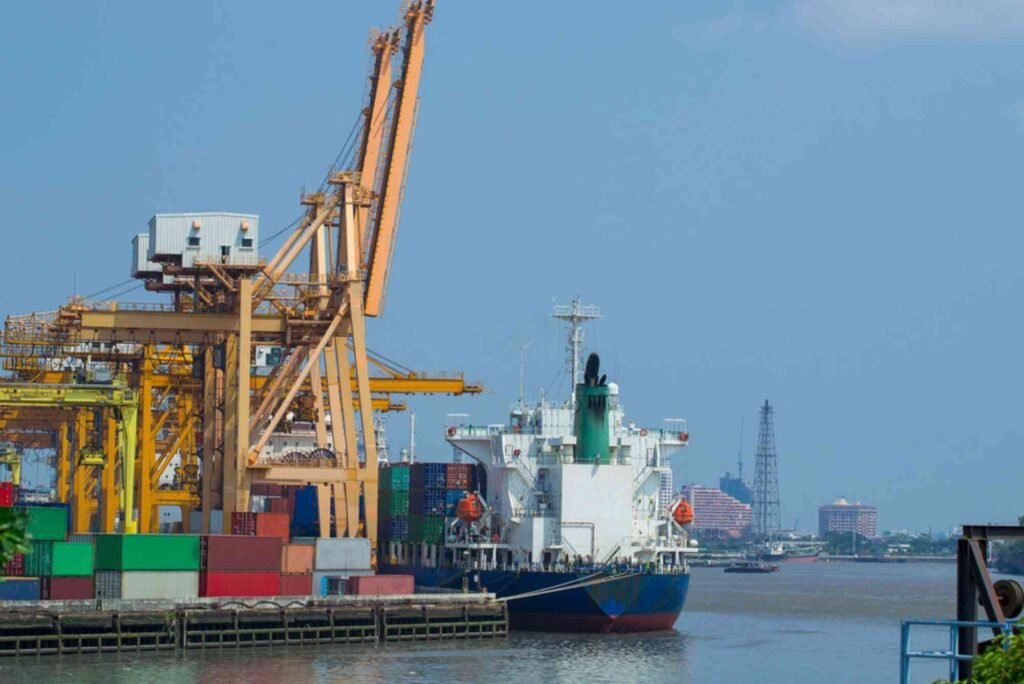Introduction
The UAE has established itself as a global trade hub, with its cargo industry playing a crucial role in international logistics. The country’s strategic location, advanced infrastructure, and seamless connectivity make it an ideal gateway for goods moving between Asia, Europe, and Africa. Among the major cities, Dubai, Abu Dhabi, Sharjah, and Ajman boast some of the most efficient cargo hubs. These centers ensure streamlined freight handling, storage, and distribution, making the UAE a leader in global logistics.
Dubai Cargo Hub
Dubai is home to some of the world’s most advanced cargo facilities. The Dubai International Airport Cargo Terminal handles millions of tonnes of freight annually, making it one of the busiest in the world. Another key facility is Al Maktoum International Airport (DWC), designed specifically for large-scale cargo operations. Additionally, Jebel Ali Port serves as a vital link between air, sea, and land transport, ensuring seamless freight movement. These hubs offer specialized services such as temperature-controlled storage, rapid customs clearance, and multimodal connectivity.
Abu Dhabi Cargo Hub
Abu Dhabi’s cargo operations are anchored by Abu Dhabi International Airport and Khalifa Port. Abu Dhabi International Airport is a growing center for air cargo, offering specialized services for perishables, pharmaceuticals, and e-commerce shipments. Khalifa Port, on the other hand, is an advanced deep-water port that enhances maritime freight efficiency. The integration of air and sea freight operations allows businesses to optimize supply chain management and improve logistics efficiency.
Sharjah Cargo Hub
Sharjah plays a vital role in UAE’s cargo movement, offering efficient logistics services for regional and international trade. The Sharjah International Airport Cargo Center is known for its cost-effective air freight solutions, catering to businesses that require quick and reliable delivery options. Additionally, Port Khalid serves as an essential seaport, connecting global trade routes. The city’s well-connected transport network makes it an attractive choice for logistics companies looking to expand their operations. For businesses seeking reliable logistics partners, checking out the Best Freight Forwarders in Sharjah is a great start.
Ajman Cargo Hub
Ajman is an emerging player in the UAE’s logistics sector. Ajman Port is a growing center for cargo operations, serving small and medium-sized businesses with efficient shipping services. The port’s modernized facilities cater to a range of industries, including construction, manufacturing, and retail. Ajman’s strategic location and cost-effective logistics solutions make it a preferred hub for businesses looking for alternative shipping routes within the UAE.
How Cargo Hubs Operate Efficiently
Cargo hubs in Dubai, Abu Dhabi, Sharjah, and Ajman implement cutting-edge logistics solutions to handle high volumes of freight efficiently. First, they use advanced cargo management systems to track shipments in real time, ensuring transparency and reducing delays. Second, these hubs have dedicated customs clearance services that expedite the documentation process, preventing bottlenecks in shipping. Third, state-of-the-art warehousing facilities enable secure storage and fast retrieval of goods, optimizing supply chain operations. Finally, these hubs integrate multimodal transportation solutions, allowing seamless movement of cargo via air, sea, and land routes.
Steps for Importing and Exporting Cargo in the UAE
Navigating the import and export processes in the UAE requires a structured approach. First, businesses must register with UAE Customs and obtain the necessary trade licenses. Second, all cargo must comply with local and international shipping regulations, including proper labeling and documentation. Third, customs clearance procedures must be completed efficiently to avoid any delays. Fourth, cargo is transported to the respective hubs via designated logistics providers for storage or onward shipping. Finally, businesses must ensure compliance with UAE taxation and duties to prevent penalties and legal issues.
Importance of Choosing the Right Cargo Hub
Selecting the right cargo hub is critical for businesses aiming to optimize their supply chain. Factors such as location, connectivity, infrastructure, and specialized services should be considered. Dubai offers world-class facilities for global trade, while Abu Dhabi provides integrated logistics solutions. Sharjah is known for cost-effective freight handling, whereas Ajman offers alternative shipping solutions for small businesses. By choosing the most suitable cargo hub, companies can enhance their operational efficiency and reduce transportation costs.
Dubai, Abu Dhabi, Sharjah, and Ajman have established themselves as key cargo hubs, each offering unique advantages for freight movement. Their strategic locations, state-of-the-art infrastructure, and streamlined logistics operations make them indispensable to global trade. Businesses looking to expand their logistics networks should evaluate these hubs carefully to optimize supply chain efficiency and reduce shipping costs.
FAQs
1. What is the busiest cargo hub in the UAE?
Dubai International Airport Cargo Terminal is the busiest cargo hub, handling millions of tonnes of freight annually.
2. How do cargo hubs in the UAE ensure efficient freight handling?
They use advanced tracking systems, streamlined customs clearance, and multimodal transport options to enhance efficiency.
3. What industries benefit most from UAE cargo hubs?
Industries such as retail, pharmaceuticals, manufacturing, and e-commerce benefit significantly from the UAE’s cargo hubs.
4. Are there cost-effective freight options in Sharjah?
Yes, Sharjah International Airport Cargo Center provides cost-effective air freight solutions for businesses.
5. What factors should businesses consider when choosing a cargo hub?
Key factors include location, connectivity, infrastructure, customs procedures, and specialized services.








